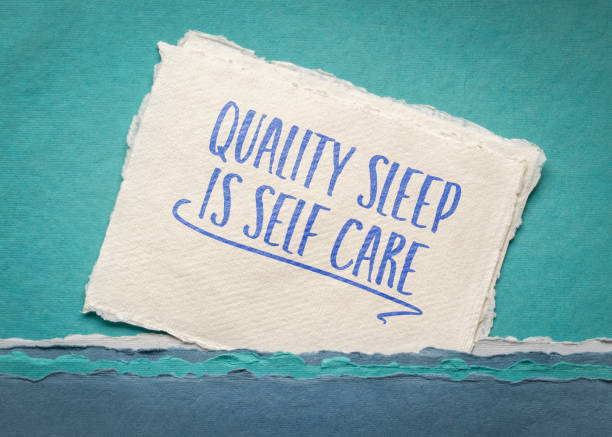Table of Contents
Sleep is a fundamental aspect of human life, essential for maintaining overall health and well-being. While it is often viewed as a passive state, sleep is a dynamic process involving complex physiological and neurological activities. Understanding the science behind sleep can shed light on its critical role in health and underscore the importance of quality sleep for a balanced life. This article explores the science of sleep, its stages, and its profound impact on physical and mental health.

The Stages of Sleep
Sleep is divided into two main types: Non-Rapid Eye Movement (NREM) and Rapid Eye Movement (REM) sleep. Each type plays a unique role in overall health.
1. Non-Rapid Eye Movement (NREM) Sleep
NREM sleep is further divided into three stages:
Stage 1: This is the lightest stage of sleep, transitioning between wakefulness and deeper sleep. It lasts only a few minutes and is characterized by a slow eye movement and relaxed muscles.
Stage 2: During this stage, heart rate slows down, and body temperature decreases. Sleep spindles—brief bursts of brain activity—occur, which are thought to play a role in memory consolidation.
Stage 3: Also known as deep sleep or slow-wave sleep, this stage is critical for physical restoration. The body repairs tissues, builds bones and muscles, and strengthens the immune system.
2. Rapid Eye Movement (REM) Sleep
REM sleep typically occurs about 90 minutes after falling asleep and recurs throughout the night. It is characterized by rapid eye movements, increased brain activity, and vivid dreaming. REM sleep is crucial for cognitive functions such as memory consolidation, learning, and emotional regulation.
The Biological Clock: Circadian Rhythms
The body’s internal clock, known as the circadian rhythm, regulates the sleep-wake cycle:
Circadian Rhythms: These 24-hour cycles are controlled by the hypothalamus in the brain and respond to external cues such as light and temperature. Disruptions to circadian rhythms, such as those caused by shift work or jet lag, can negatively impact sleep quality and overall health.
Melatonin: This hormone, produced by the pineal gland, helps regulate sleep by signaling the body when it’s time to sleep. Melatonin levels naturally increase in the evening and decrease in the morning.

The Impact of Sleep on Health
Quality sleep is vital for various aspects of physical and mental health:
1. Physical Health
Immune Function: Adequate sleep strengthens the immune system, enhancing the body’s ability to fight off infections. Chronic sleep deprivation can impair immune response, increasing susceptibility to illnesses.
Cardiovascular Health: Poor sleep is linked to an increased risk of cardiovascular conditions such as hypertension, heart disease, and stroke. Sleep helps regulate blood pressure and heart rate, reducing the risk of cardiovascular events.
Metabolism and Weight: Sleep influences metabolism and appetite-regulating hormones. Insufficient sleep can lead to weight gain and obesity by affecting hunger and satiety signals.
2. Mental Health
Cognitive Function: Quality sleep is essential for cognitive processes such as attention, problem-solving, and decision-making. Sleep deprivation can impair cognitive performance and memory.
Emotional Regulation: Sleep plays a crucial role in emotional regulation and mental health. Chronic sleep disturbances are associated with an increased risk of mood disorders such as depression and anxiety.
Stress Response: Adequate sleep helps regulate the stress response by reducing the production of stress hormones like cortisol. Poor sleep can exacerbate stress and impact overall well-being.
Sleep Disorders and Their Implications
Several sleep disorders can affect sleep quality and overall health:
1. Insomnia
Insomnia involves difficulty falling or staying asleep and can lead to daytime fatigue and impaired functioning. It is often linked to stress, anxiety, and other health conditions.
2. Sleep Apnea
Sleep apnea is characterized by repeated interruptions in breathing during sleep. It can lead to fragmented sleep and is associated with increased risk of cardiovascular problems and daytime drowsiness.
3. Restless Legs Syndrome (RLS)
RLS is a condition characterized by uncomfortable sensations in the legs and an uncontrollable urge to move them, which can disrupt sleep and lead to daytime fatigue.

Strategies for Improving Sleep Quality
To enhance sleep quality and overall health, consider the following strategies:
1. Maintain a Consistent Sleep Schedule
- Regular Sleep Patterns: Going to bed and waking up at the same time every day helps regulate circadian rhythms and improve sleep quality.
2. Create a Sleep-Friendly Environment
- Comfortable Sleep Environment: Ensure your sleep environment is conducive to rest by keeping the room dark, quiet, and at a comfortable temperature. Invest in a comfortable mattress and pillows.
3. Practice Good Sleep Hygiene
- Pre-Sleep Routine: Establish a relaxing pre-sleep routine to signal to your body that it’s time to wind down. Avoid stimulants such as caffeine and electronic screens before bedtime.
4. Manage Stress
- Stress Reduction Techniques: Incorporate stress-reducing practices into your routine, such as mindfulness, meditation, or deep breathing exercises, to promote relaxation and improve sleep quality.
5. Seek Professional Help
- Medical Consultation: If you experience persistent sleep problems or symptoms of a sleep disorder, consult a healthcare professional for evaluation and treatment options.
Conclusion
Understanding the science of sleep underscores its critical role in maintaining overall health and well-being. Quality sleep is essential for physical health, cognitive function, and emotional regulation. By recognizing the stages of sleep, the role of circadian rhythms, and the impact of sleep on health, individuals can take proactive steps to improve their sleep quality and enhance their quality of life. Embracing good sleep practices and addressing sleep disorders can lead to better health outcomes and a more balanced, fulfilling life.